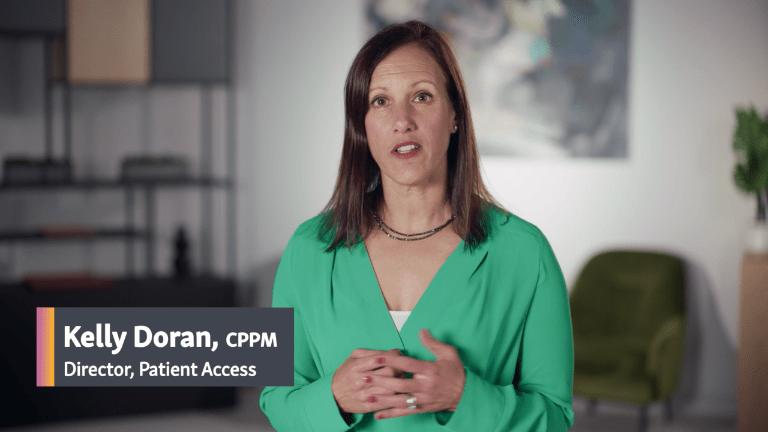IMPORTANT SAFETY INFORMATION
What is UPLIZNA?
UPLIZNA is a prescription medicine used to treat adults with neuromyelitis optica spectrum disorder (NMOSD) who are anti-aquaporin-4 (AQP4) antibody positive.
It is not known if UPLIZNA is safe or effective in children.
Who should not receive UPLIZNA?
You should not receive UPLIZNA if you have:
- –had a life-threatening infusion reaction to UPLIZNA.
- –an active hepatitis B virus infection.
- –active or untreated inactive (latent) tuberculosis.
Before receiving UPLIZNA, tell your healthcare provider about all of your medical conditions, including if you:
- –have or think you have an infection.
- –have ever taken, currently take, or plan to take medicines that affect your immune system, or other treatments for NMOSD. These medicines may increase your risk of getting an infection.
- –have or have ever had hepatitis B or are a carrier of the hepatitis B virus.
- –have or have ever had tuberculosis.
- –have had a recent vaccination or are scheduled to receive any vaccinations. You should receive any required vaccines at least 4 weeks before you start treatment with UPLIZNA.
- –are pregnant or plan to become pregnant. It is not known if UPLIZNA will harm your unborn baby. Females should use birth control (contraception) during treatment with UPLIZNA and for 6 months after your last infusion of UPLIZNA.
- –are breastfeeding or plan to breastfeed. It is not known if UPLIZNA passes into your breast milk. Talk to your healthcare provider about the best way to feed your baby if you receive UPLIZNA.
Tell your healthcare provider about all the medicines you take, including prescription and over-the-counter medicines, vitamins, and herbal supplements.
What is the most important information I should know about UPLIZNA?
UPLIZNA may cause serious side effects, including:
Infusion reactions. UPLIZNA can cause infusion reactions that can be serious or may cause you to be hospitalized. You will be monitored during your infusion and for at least 1 hour after each infusion of UPLIZNA for signs and symptoms of an infusion reaction. Tell your healthcare provider right away if you get any of these symptoms:
- headache
- nausea
- sleepiness
- shortness of breath
- fever
- muscle aches
- rash
If you develop an infusion reaction, your healthcare provider may need to stop or slow down the rate of your infusion and treat your symptoms.
Infections. Infections can happen during treatment with UPLIZNA. Tell your healthcare provider right away if you have an infection or get any of these symptoms:
- painful and frequent urination
- nasal congestion, runny nose, sore throat, fever, chills, cough, body aches
- UPLIZNA taken before or after other medicines that weaken the immune system may increase your risk of getting infections.
- Hepatitis B virus (HBV) reactivation. Before starting treatment with UPLIZNA, your healthcare provider will do blood tests to check for hepatitis B viral infection. If you have ever had hepatitis B virus infection, the hepatitis B virus may become active again during or after treatment with UPLIZNA. Hepatitis B virus becoming active again (called reactivation) may cause serious liver problems, including liver failure or death. Your healthcare provider will monitor you if you are at risk for hepatitis B virus reactivation during treatment and after you stop receiving UPLIZNA.
- Progressive Multifocal Leukoencephalopathy (PML). PML may happen with UPLIZNA. PML is a rare brain infection that leads to death or severe disability. Symptoms of PML may get worse over days to weeks. Call your healthcare provider right away if you get any of these symptoms:
- –weakness on one side of the body
- –loss of coordination in your arms and legs
- –changes in your vision
- –changes in thinking or memory
- –confusion
- –changes in your personality
- Tuberculosis (TB). TB is caused by an infection in the lungs. Before starting treatment with UPLIZNA, your healthcare provider will check to see if you are at risk for getting TB or have ever had TB.
- Vaccinations. Certain vaccines, called “live” or “live attenuated” vaccines, are not recommended in people receiving UPLIZNA. Talk to your healthcare provider before receiving any vaccinations. If you have a baby and you were receiving UPLIZNA during pregnancy, it is important to tell your baby’s healthcare provider about your UPLIZNA use so they can decide when your baby should receive any vaccine.
See “What are the possible side effects of UPLIZNA?” for more information about side effects.
How will I receive UPLIZNA?
- UPLIZNA is given through a needle placed in a vein (IV or intravenous infusion) in your arm.
- Before treatment with UPLIZNA, your healthcare provider will give you a corticosteroid medicine, an antihistamine, and a fever prevention medicine to help infusion reactions become less frequent and less severe. See “What is the most important information I should know about UPLIZNA?”
- Your first dose of UPLIZNA will be given as 2 separate infusions, 2 weeks apart.
- Your next doses of UPLIZNA will be given as one infusion every 6 months.
- Each infusion will last about 1 hour and 30 minutes. After each infusion, you will be monitored by a healthcare provider for at least 1 hour.
What are the possible side effects of UPLIZNA?
UPLIZNA may cause serious side effects, including:
- See “What is the most important information I should know about UPLIZNA?”
- low blood cell counts. UPLIZNA may cause a decrease in some types of blood cells. Your healthcare provider will do blood tests to check your blood cell counts.
The most common side effects include urinary tract infection and joint pain.
These are not all the possible side effects of UPLIZNA.
Call your doctor for medical advice about side effects. You may report side effects to FDA at 1-800-FDA-1088.


